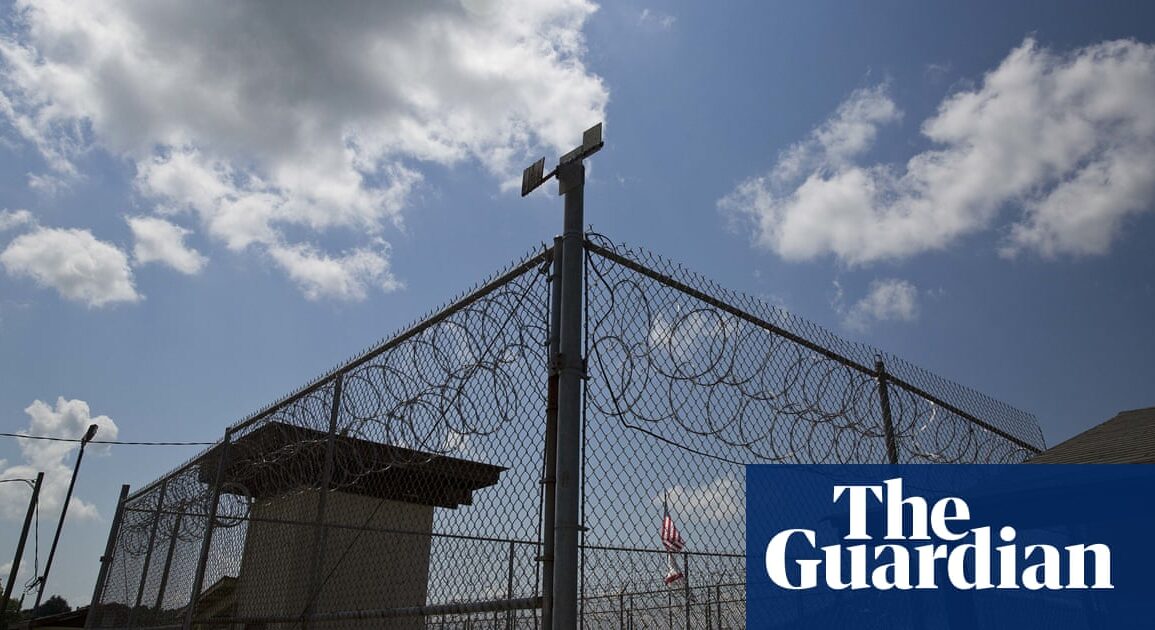
A man who died in the custody of Alabama’s correction’s department was reportedly returned to his family without his organs, including his brain.
The news, which broke earlier this week, is the second recent case involving allegations of missing body parts from people in prison in the state. The US prison system is widely criticized for its poor treatment of inmates.
Charles Edward Singleton, an man who was housed at the state’s Hamilton Aged and Infirmed custody facility, died in November 2021, ABC 33/40 TV in Birmingham, Alabama reported. Following Singleton’s death, the pathology department at the University of Alabama performed an autopsy on his body, according to a family member who spoke to the local news station.
Singleton’s family requested his body be sent to a funeral home in Pell City. However, ABC 33/40 reports that the funeral home’s director informed Singleton’s family that “it would be difficult to prepare his body for viewing” due to its “noticeable state of decomposition,” adding that there was “advanced skin slippage”.
Singleton’s family was informed that there were no organs in his body and that his brain had been removed, according to court filings reviewed by ABC 33/40. His family was also informed that organs are usually placed in a bag and put back inside bodies following autopsies.
Singleton’s family requested the University of Alabama to return his organs but reported that they never received them, per the court filings.
In a statement to ABC 33/40, the University of Alabama said: “We do not comment on pending litigation. We only conduct autopsies with consent or authorization and follow standard procedures equitably for anyone consented to or authorized for an autopsy. The autopsy practice is accredited by the College of American Pathologists and staffed by credentialed physicians who are certified by the American Board of Pathology.”
“In an autopsy, organs and tissues are removed to best determine the cause of death. Autopsy consent includes consent for final disposition of the organs and tissues; unless specifically requested, organs are not returned to the body,” it added.
“UAB is among providers that – consistent with Alabama law – conduct autopsies of incarcerated persons at the direction of the state of Alabama. A panel of medical ethicists reviewed and endorsed our protocols regarding autopsies conducted for incarcerated persons.”
The Guardian has contacted the state’s correction’s department for comment.
In another similar case involving the state’s corrections department, the family of 43-year-old Brandon Clay Dotson, who was incarcerated and died in prison last November, has been struggling to determine the whereabouts of his heart.
Dotson’s mother and sister spent five days trying to claim his body after his death and when he was finally returned to them, they reported “bruising on the back of [his] neck and excessive swelling across his head,” according to Fox News.
after newsletter promotion
A lawsuit filed by Dotson’s family and reviewed by the network said that they hired their own pathologist to conduct an autopsy as they were unsure of how Dotson died and never received a death certificate.
The lawsuit states that Dotson’s heart was missing from his chest cavity. It added that it is “reasonable for plaintiff to believe that Dotson’s heart was removed for an improper purpose – namely, to be sent to UAB for the purpose of providing UABSOM [University of Alabama Heersink School of Medicine] students with a laboratory specimen to experiment on or study”.
A university spokesperson told Fox News that “UAB did not perform this autopsy and has not been involved in this matter”.
Nevertheless, Dotson’s family has asked for a list of all organs that have been removed or retained from people who were incarcerated and died in the state’s corrections facilities since 2013.
“This document is critical to fulfill the third measure sought in the motion for TRO [temporary restraining order]: freezing the practice of improperly and potentially illegally retaining organs from autopsies without providing notice or seeking consent from the family members of the deceased,” the lawsuit said.
This post was originally published on this site be sure to check out more of their content.









